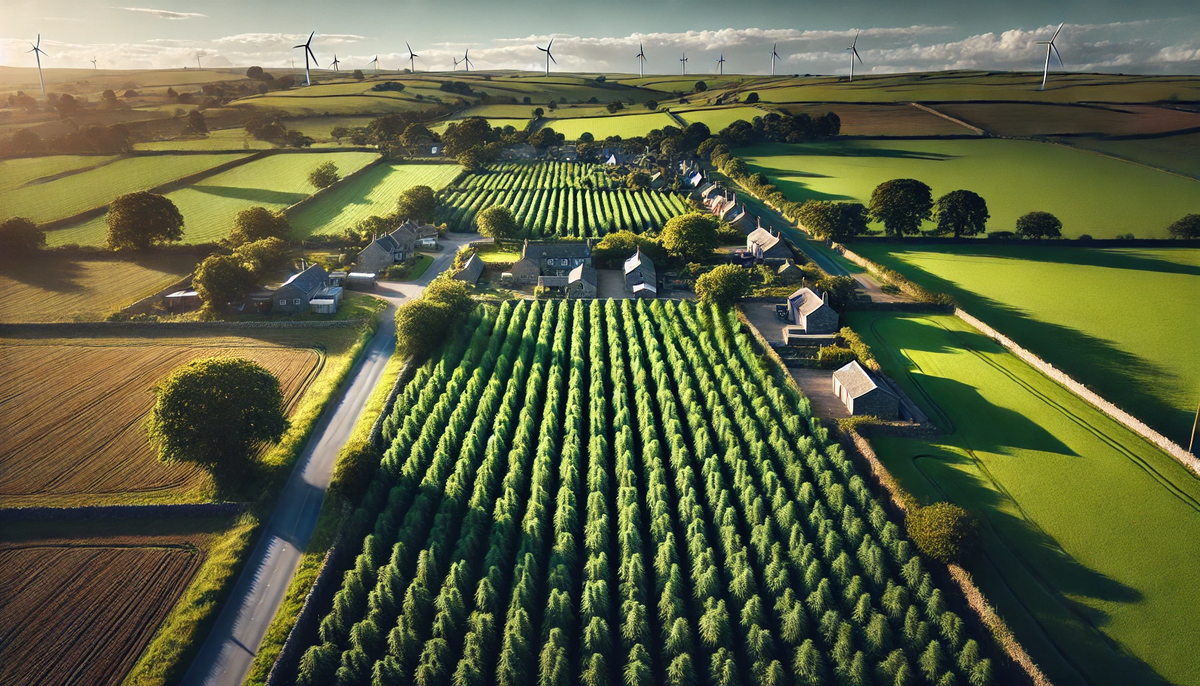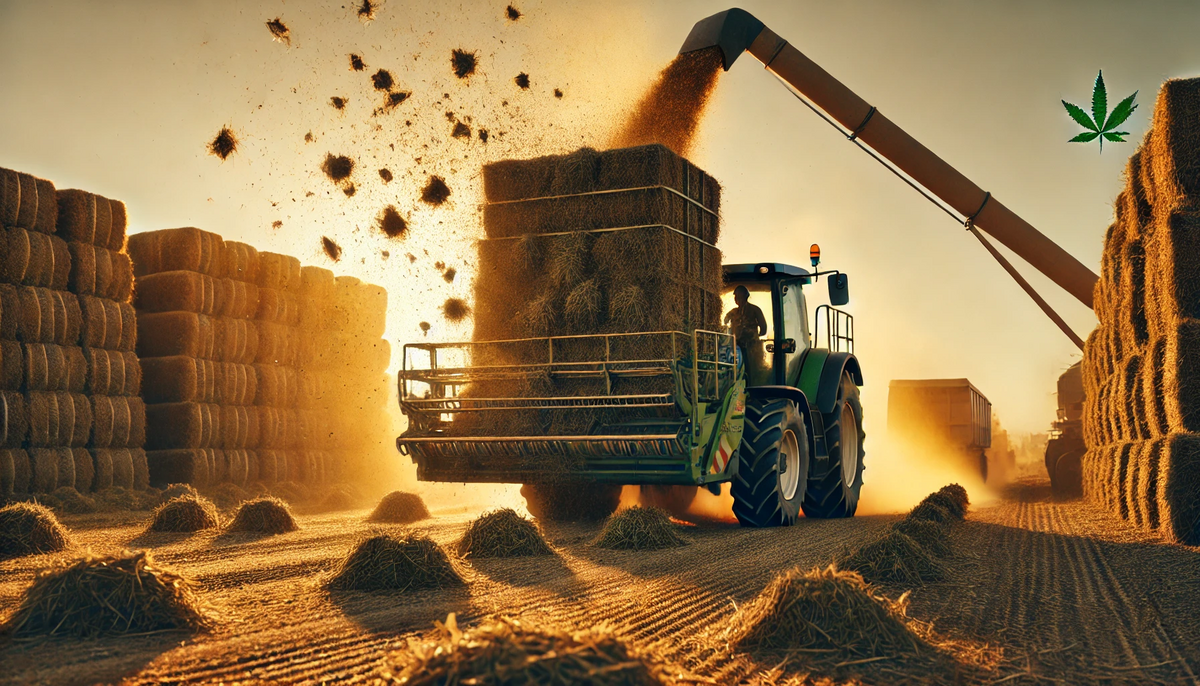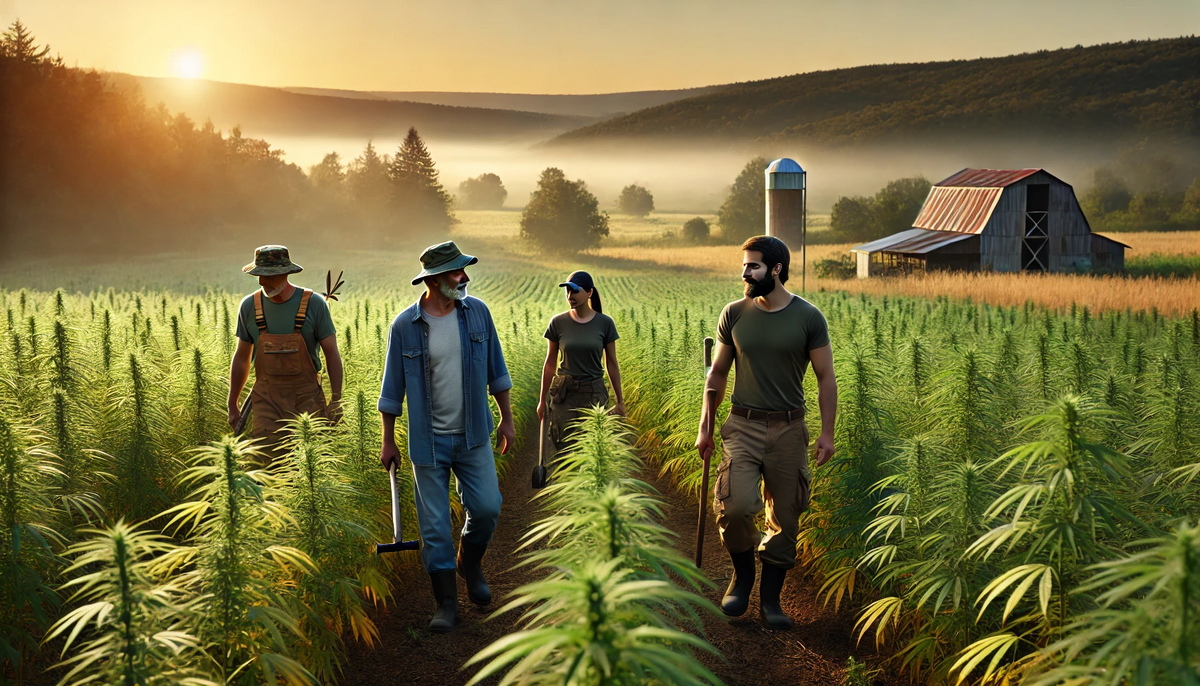
Following the inaugural meeting of the APPG for Hemp, Carbon Capture and the Rural Economy, a powerful idea emerged - what do hemp, climate policy, the rural economy, and our veterans have in common?
The answer?
Much more than most policymakers realise.

Hemp: The Catalyst Crop
Hemp is not just another agricultural product. It’s a uniquely versatile crop that:
- Rapidly absorbs atmospheric carbon dioxide, locking it into carbon-negative products
- Creates economic opportunity in rural areas, particularly where traditional farming has declined
- Offers dignified, purposeful work for veterans transitioning to civilian life
Any one of these outcomes would make hemp valuable. Combined, they make it indispensable to a future-facing UK.
Carbon Capture: From Field to Construction Site
As outlined by Nick Morland during the APPG, hemp is a high-efficiency carbon sink. It sequesters more CO₂ per hectare than most forests, and when converted into products like hempcrete or biochar, that carbon is locked away for decades—if not centuries.
Hemp has the potential to become a cornerstone of the UK’s net-zero strategy, offering verifiable and tradeable carbon capture through its full lifecycle.
Rural Revival: Rebuilding from the Ground Up
Hemp is also a low-input crop that grows well in UK conditions and has uses across multiple industries: food, textiles, construction, wellness, and more. For farmers, this means multiple revenue streams from a single plant—and for rural communities, it means local jobs, processing infrastructure, and entrepreneurial growth.
This is regeneration in the truest sense: environmentally and economically.

PoCA: The Invisible Handbrake
But there’s a catch. A significant barrier to growth is the Proceeds of Crime Act (PoCA) 2002, which has been applied in ways that stifle hemp and cannabis-related businesses. Even for fully legal CBD products, banks and investors remain cautious, fearing their revenue could be considered the “proceeds of crime” without explicit Home Office clearance.
Until PoCA is addressed, the UK will struggle to scale what could be a world-leading hemp industry. Reform here isn’t optional—it’s foundational.
Veterans: From Defence to Environmental Duty
In a poignant contribution to the APPG, General Sir Nicholas Parker spoke of the unique value veterans can bring to rural and environmental work. Many are seeking purpose after service—roles that use their skills, respect their discipline, and give them a new mission.
Hemp farming and its associated industries can provide exactly that.
Whether through hands-on cultivation, technical consultancy, or leadership in rural enterprise, veterans are uniquely positioned to become pioneers in green agriculture and regenerative business.
The Big Picture
At the intersection of all these issues - climate, rural policy, law reform, and veteran reintegration - stands hemp.
If we:
- Reform outdated laws like PoCA
- Invest in localised hemp processing infrastructure
- Support veteran retraining in regenerative agriculture
- Embed hemp into the UK’s carbon capture and green industry strategy
…we don’t just grow a crop. We grow an entire sector - with massive returns in carbon, community, and national resilience.
Published 16th April 2025





